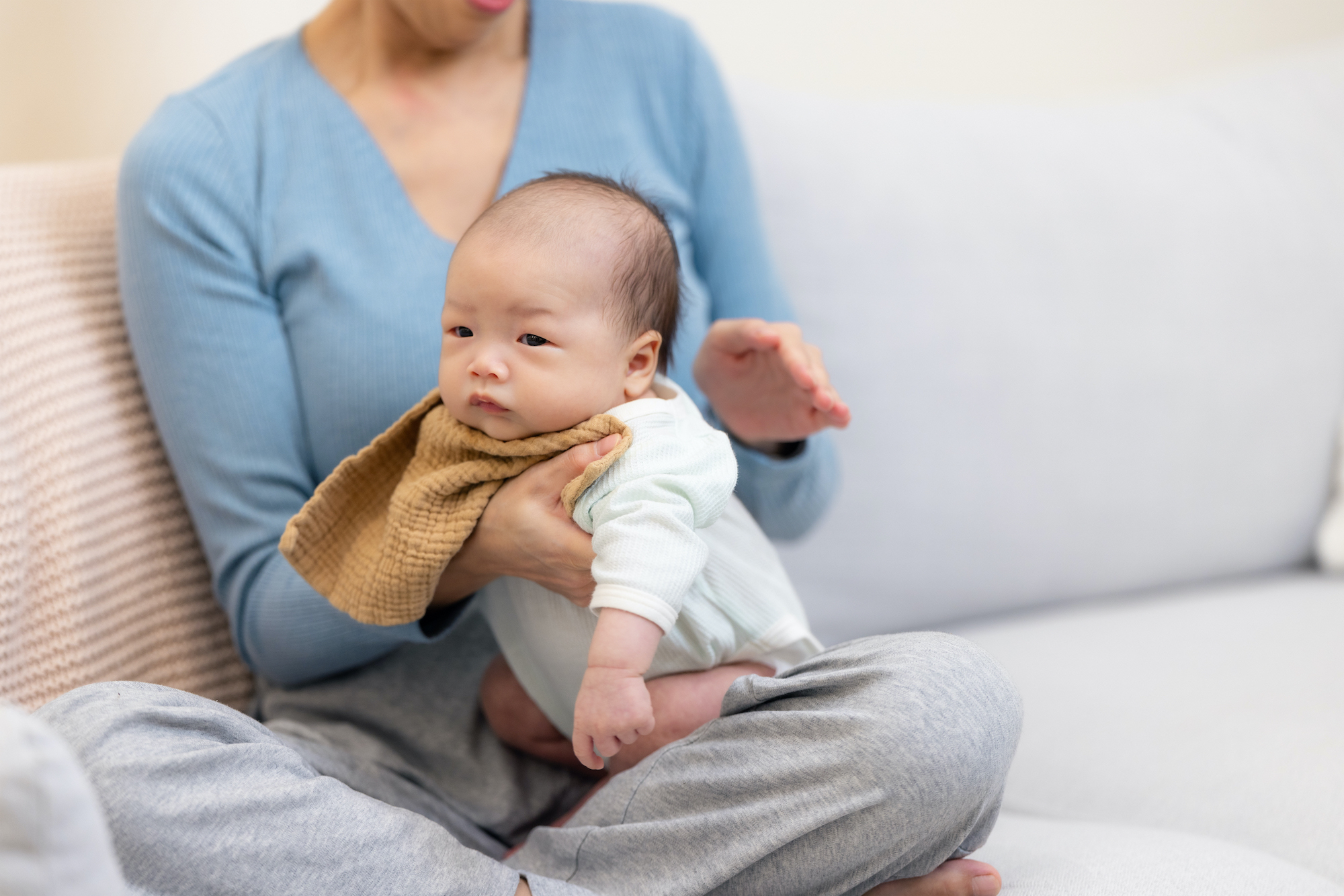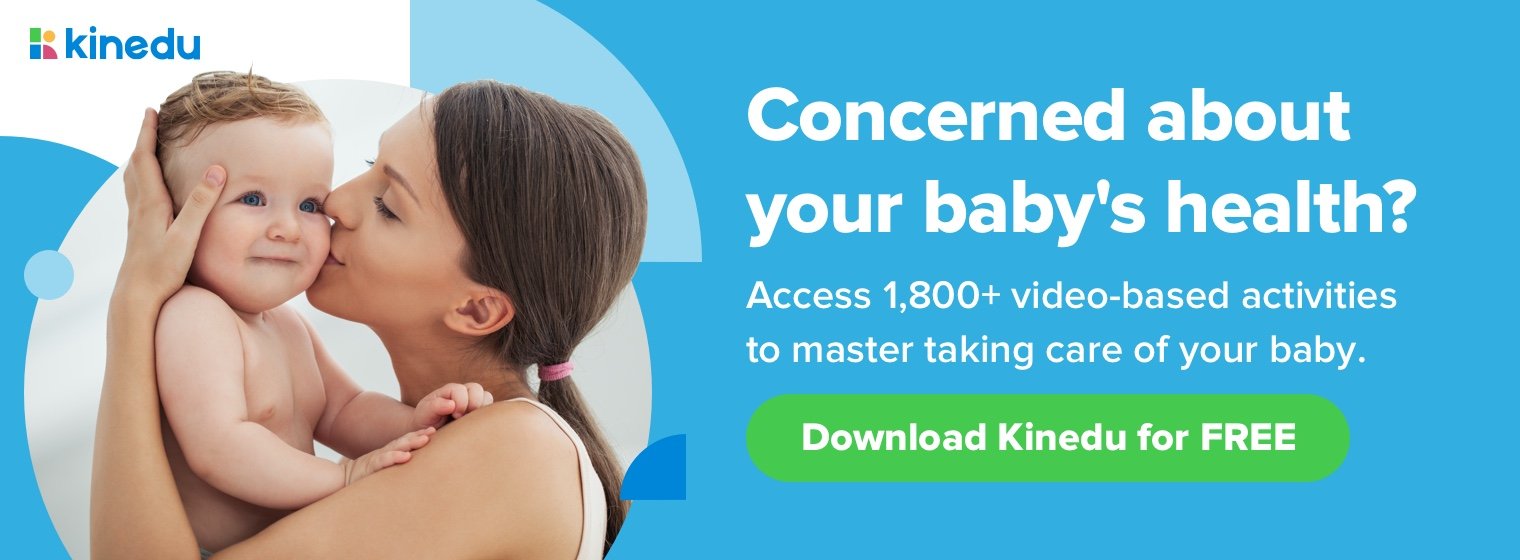Hiccups happen when the diaphragm, the muscle responsible for breathing, experiences an involuntary spasm. This quick movement forces air into the lungs, causing the vocal cords to close briefly and produce the familiar “hic” sound.
Hiccups in babies are a natural and common occurrence, usually nothing to be concerned about; in fact, hiccups are a normal part of a newborn’s development! In this article, we’ll see why babies get hiccups and what you can do to soothe them.
Why do babies get hiccups?
The exact cause is not always clear, but here are a few common triggers:
Overeating or eating too quickly: Consuming too much or too quickly can irritate the diaphragm, often because the baby swallows air during feeding. This is especially common in bottle-fed babies.
Swallowing air: Air intake during feeding, particularly with bottles, can lead to hiccups.
Sudden temperature changes: Moving from a warm room to a cooler one or any sudden drop in temperature can trigger hiccups.
Excitement or stress: Overstimulation, stress, or excitement can sometimes cause the diaphragm to spasm, leading to hiccups.
Are hiccups harmful to newborns?
In most cases, newborn hiccups are completely harmless. They do not cause pain or discomfort and typically do not interfere with your baby’s health or development. However, frequent or persistent hiccups, especially if they seem to be causing distress, may warrant a consultation with your pediatrician.
While hiccups are usually harmless, it’s important to consult your pediatrician if your baby’s hiccups are persistent and severe, or if your baby is experiencing other symptoms, such as difficulty breathing or feeding.
How can I handle hiccups in my newborn?
While hiccups in babies are usually harmless and go away on their own, here are some gentle methods to help ease them:
- Burp your baby: Burping your baby after feeding can release trapped air and prevent hiccups. Pause during feeding if your baby is eating too quickly to allow them to digest and avoid swallowing too much air.
- Offer a pacifier: Sucking on a pacifier can help distract your baby and relax their diaphragm, potentially stopping the hiccups.
- Gentle massage: A light massage on your baby’s back or tummy can help relax their muscles and reduce the spasms causing hiccups.
- Hold your baby upright: Keeping your baby in an upright position after feeding can aid digestion and minimize hiccups.
- Warm drink: A warm drink of breast milk or formula can sometimes help calm the diaphragm and ease hiccups.
- Wait: In most cases, hiccups will go away on their own within a few minutes!









